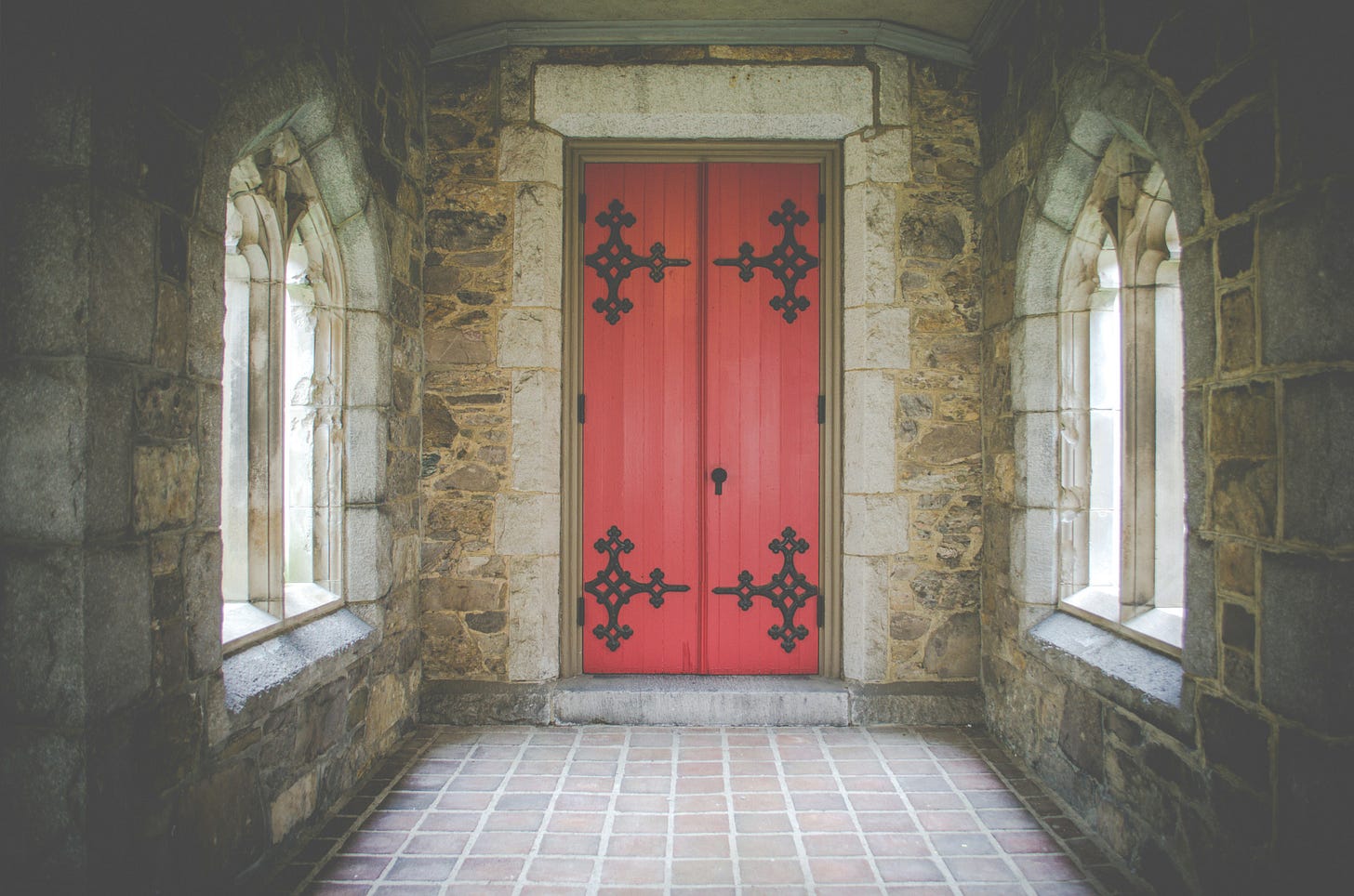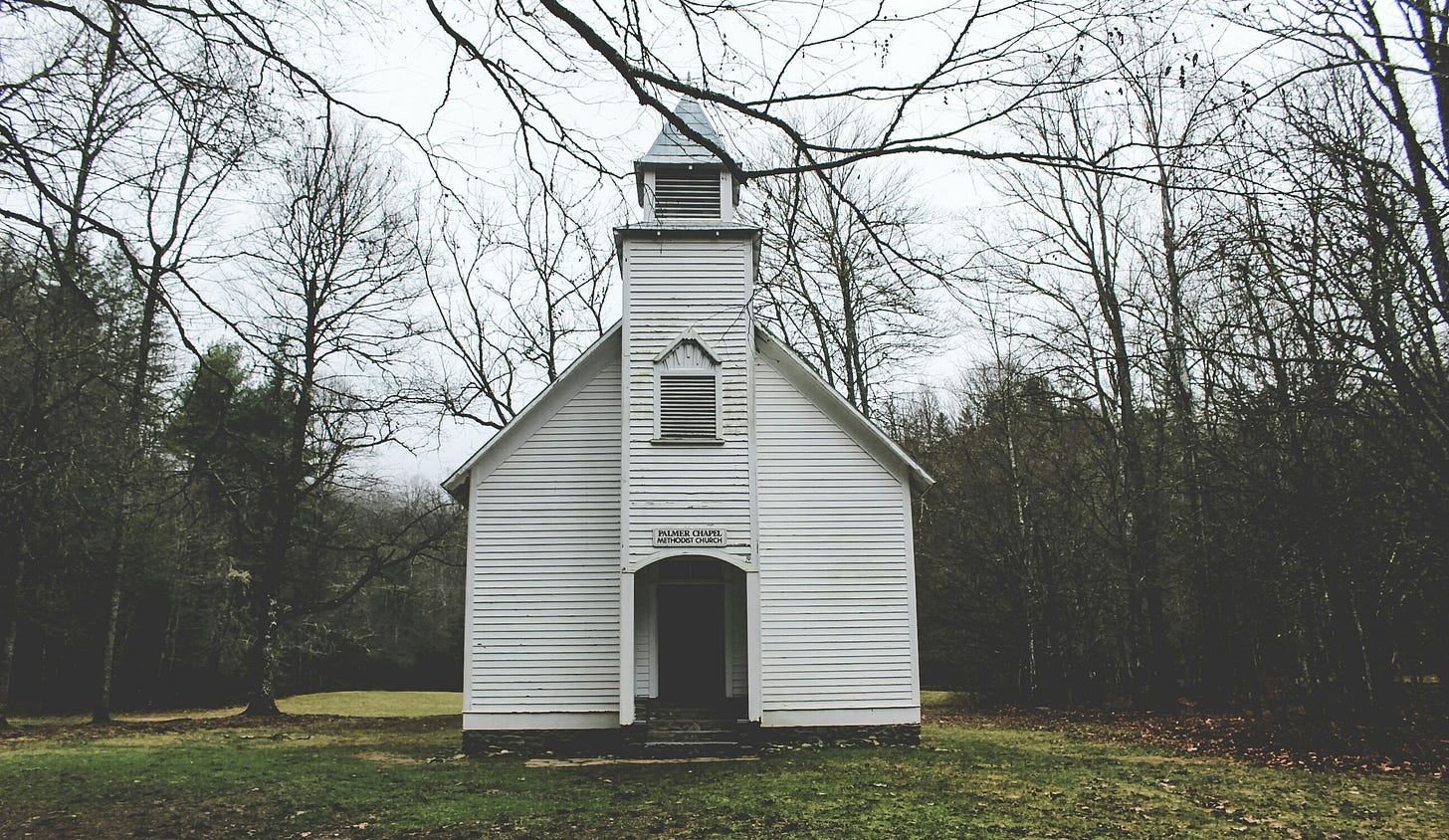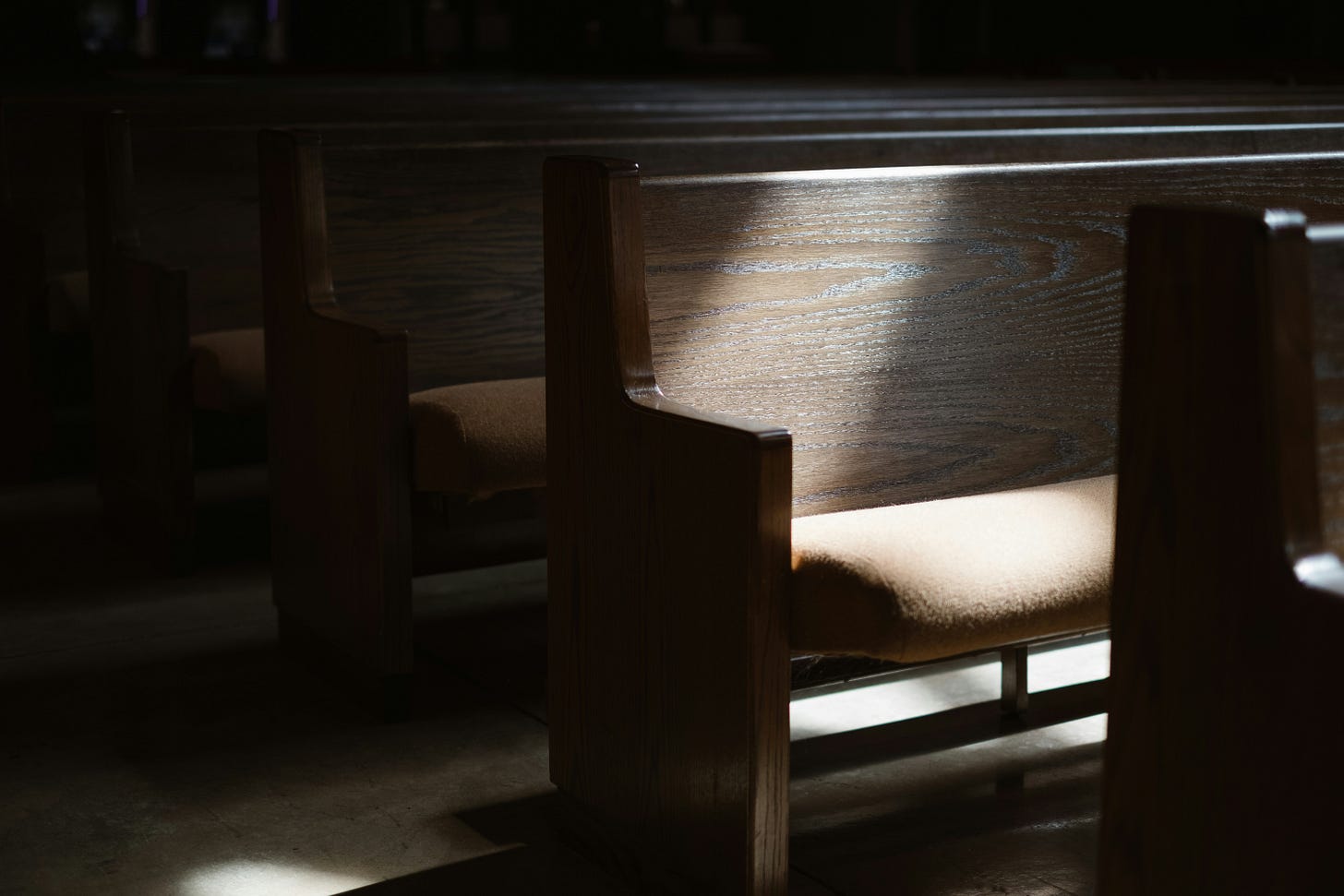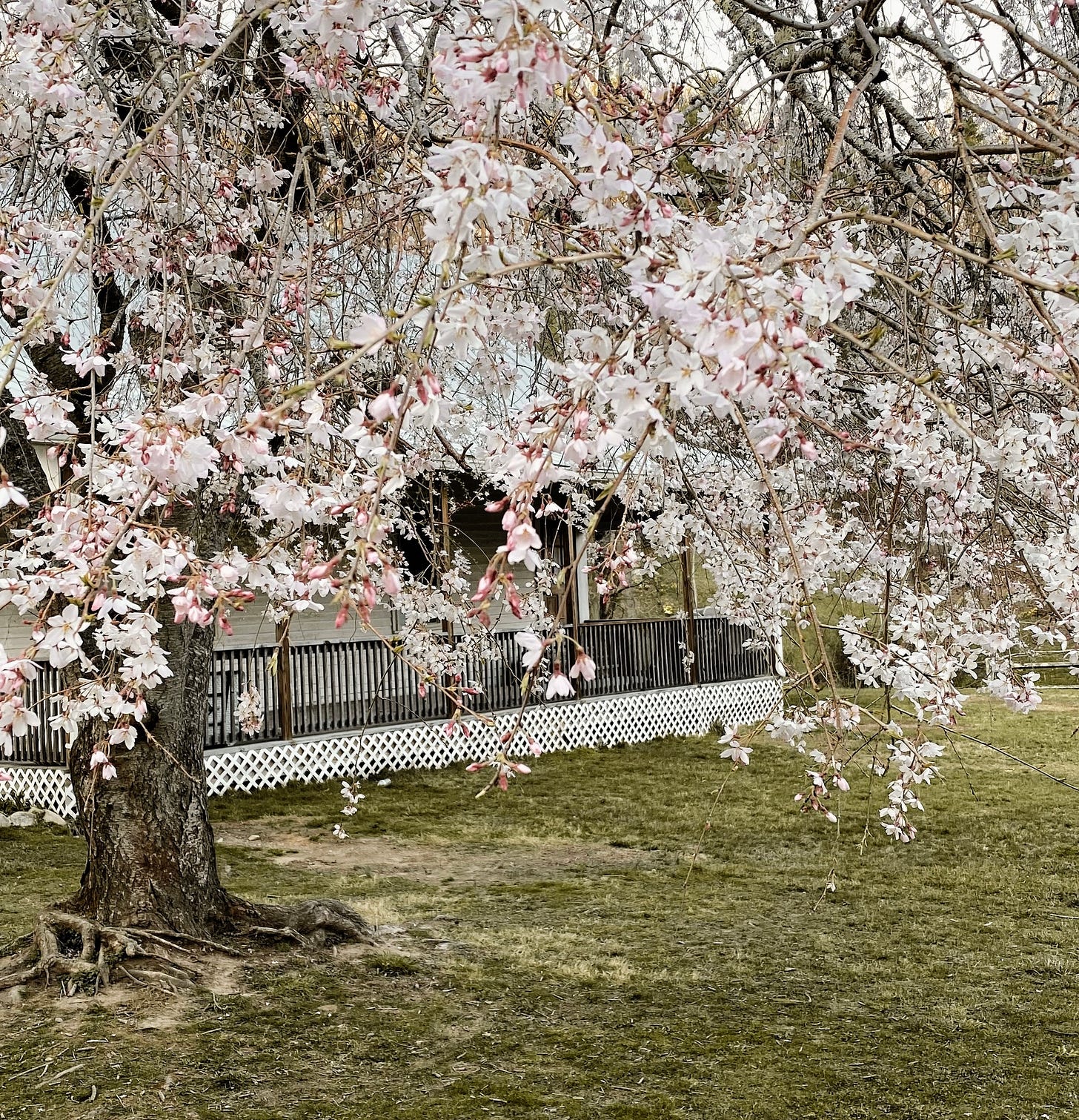What Does the Lord Require of You?
Shifting Vibes, the Great Return, and Why the Gospel is More than a Trend

Lately, I’ve been hearing and reading a lot about the “vibe shift” we are seeing in American culture. It is supposedly a shift not only to the political right, but also a move back to organized religion and a renewed interest in the spiritual realm.
For decades, participation in organized religion had been on the decline in the United States, with church attendance and trust in clergy plummeting. The religious decline seemed to coincide with a rise in overall cynicism towards institutions in general. Meanwhile, conservatives watched as progressive ideas on everything from politics to interpretations of history, from gender to sexuality began to dominate Hollywood, academia, and many mainstream media outlets.
These changes led to existential panic among many Evangelical leaders. Some enlisted to fight in the ever-raging culture wars, strengthening their alliance with the political right. Others created think tanks, writing books and launching podcasts that strategized how the Church might “remain relevant.”
But now, new data shows this much dreaded religious decline has slowed and even leveled off. Studies show that Bible sales are up, and some cultural analysts have observed that the new atheism movement has run its course in in the Western world. Three-hundred years after the Enlightenment, we are seeing growing desire for re-enchantment, spiritual connection, and an open concession that science hasn’t fully explained the profundity of human existence. Even popular podcaster Joe Rogan, who has spoken with great hostility towards religion in the past, is now expressing a genuine interest in Christianity.
Donald Trump won the 2024 election, and though his victory was not nearly as sweeping as he insists, a significant number of Americans excitedly approve of his policies around social issues. In online spaces, we are seeing a celebration of the return of traditional masculinity (with the Tate brothers being the most toxic iteration of this trend). The Tradwife movement, with its social media celebrities, has become a multi-million-dollar industry.
I’m not well equipped to comment on political and social trends as complex as these. But as a person of faith - who never really stopped going to church and who has maintained my belief in God (on most days!) my whole life - I’ve been closely watching this potential resurgence of religion. My emotional response oscillates between excitement and ambivalence.
And…surprisingly…concern.
There is much to account for both the departure and return to Church. Untold numbers of Christians who were raised in the Church deconstructed in the early 2000s and 2010s; they did so for all sorts of reasons. Some experienced traumatic abuse in the Church, some found the Church failed to provide an intellectually coherent case for the existence of God, while others simply caught the contagion of cynicism and mistrust of institutions.
But as we close on the first quarter of the 21st century, it seems many who left the Church (or never went in the first place) are feeling the acute loneliness of this post-Covid age of isolation and individualism. They miss the communal habits and fellowship the Church has to offer. High modernity has felt rather empty for some, and many see the pitfalls of a post-religious society. People miss the meaning and belonging one feels in sacred spaces. Some miss the moral compass of Christianity, the positive impact that religious virtues seem to have on politics and culture.
And so, it seems possible that many will come back to the Church. If they do, it will be for the community. It will be for the sacred rituals. It will be for the moral framework. It will be because cultural trends are simply nudging them in that direction.

If you know me (or are a regular reader of Provisions), you know that community, ritual, and shared habits of virtue are all things I celebrate loudly and often here…and, frankly, everywhere I write or create. I even wrote a book about grief rituals and the role the Church plays in preserving those traditions. As far as I’m concerned, it is good for people to be physically present in the house of God or with the people of God, no matter their motivation. I live by the ethos of “The More the Merrier,” because I believe God has always been (as Marilynne Robinson says) “inclined towards the multitudes,” (even as He miraculously maintains an affinity for “the one,” offering his entire attention to the lost sheep, the missing coin, the wandering outliers…what a wonder!!)
I suppose I’ll blame the Church calendar for my emotional dissonance around this alleged Great Return. The Lenten and Easter seasons are a time when the Church focuses on its defining values, that climactic event that led to its founding - namely the death and resurrection of Jesus. It is a time when we reflect on what, exactly, the Lord requires of us…the decision that is forced when you truly come face to face with the cross.
I think at the heart of my misgivings is the fear that people will come to Christianity because they’ve conflated political conservativism (or, more pointedly, Trumpism) with religious participation. People may feel that if they subscribe to the values of the political right, they must subscribe to Christianity, or vice versa (as in “if I voted for Trump, I guess I need to be a Christian”…or if “I am a Christian, I guess I need to support Trump”) simply because these are the two categorical buckets that have been imposed upon us for far too long.
I also worry that Christianity, for some, is just another tool in their DIY spirituality toolkit. And as much as I believe in the power of habit, church attendance and spiritual practices can easily become simply one more iteration of the self-help/self-improvement project that has played such a prominent role in the American psyche since the early 20th century.
I yearn for the multitudes. I ache for revival. But I don’t want an artificial revival (trust me, I’ve had a few too many artificial revivals in my own life). The gospel is not a political movement. The gospel is not a vibe, nor is it a project of self-improvement.
People may come to church for all the reasons I listed above. But I think it’s important for all of us to understand what the gospel will ultimately (if you stick around long enough) require of you. Jesus warned us that his way was narrow, and not easily entered (apparently the gate is small and hard to find). The gospel requires you to truly humble yourself, to exchange your own sense of moral certitude and rightness for the goodness of Jesus. It insists on meekness. It will knock you off your own moral high ground over and over again.
The gospel asks you to not only follow the teachings of Jesus, but to internalize them. It requires you to carefully scrutinize your own motives, to usurp pride with teachability, to do what is right even when no one is watching. The gospel is not about winning. It turns out, the gospel is news that’s as good for your enemies as it is for you.
The gospel will insist that you consider words and ideas that have been politically appropriated or weaponized (words like justice, empathy, inclusion, and liberation) and fully embrace these concepts in the way God has commanded us to (and as Jesus demonstrated in His life). The gospel is a call to both activism and personal repentance.
The gospel imposes a radically selfless ethos upon you, asks you to give generously for the poor, speak up for the oppressed, shelter anyone who has been abandoned, and to do all of this cheerfully. It asks you to do all of this not because such actions are trending, but because righteousness is the timeless quality of God own heart, and we are most fully ourselves when we act in the image of God.
The gospel will demand that you be acutely suspicious of money and power…will suggest that the soul is at risk until you are willing to give those things up. The gospel will call you to love and serve your fellow citizen. But it also demands that you pledge your allegiance to a new kingdom, one that is so all consuming that your love and loyalty to it should feel like a renouncement of all other citizenships or affiliations. The gospel places you a new family, give you a new set of obligations.
The story of Easter tells us that ultimately, the gospel requires you to lay down your life (your pride, your agenda, your security), trusting in the provision of Jesus and a resurrection to come. We trade the seen for the unseen, the grandstanding for the hiddenness, the vibes for the visceral, the trends for the truth.
And if that sounds like too much…well…let me tell you from personal experience it is! It is impossible. The paradoxical beauty of the gospel is that it requires more of you than you can possibly give…but then accepts with gracious joy whatever meager offering you have. Christ somehow enables me to stay on this path that is simultaneously narrow in its requirements, and miraculously broad in its grace. I’ll say it again, what a wonder!!
I wish I hadn’t succumbed to the existential panic of the last decade or two. I wish I’d remembered that the Church is an ancient, resilient community…one that has survived wars, trends, theological tumult, corruption, plagues, political movements, and seismic cultural shifts. The Church has survived vibes, both favorable and unfavorable. If, as Jesus said, “the gates of hell shall not prevail against it” (Matthew 16:18), discouraging data is nothing to be feared, nor does our success depend on political power or good press from podcasters.
So, if you come to church for the vibe shift…welcome. I hope you stay for the gospel…for the wonder of it…the miracle of it…the aliveness that comes when you say yes to a beautifully impossible way.

AND NOW FOR SOME PROVISIONS…
This week, CT released an article I wrote entitled Cafeteria Church about my church The Heart here in Boone, North Carolina. The article talks about what happened when we moved from meeting in a theater to a cafeteria.
I don’t write too much publicly about my specific involvement with church…I consider that part of my life to be a group project, and it’s important for me not to speak for the group. Our church has been through some difficult times (as many churches have post-Covid), and it’s been quite a journey for us in the last five years…with a lot of ups and downs. I’m really grateful to my pastor and ministry leadership team for their help in crafting this piece and I hope it will be of help to other congregations as they consider the spiritually formative impact their actual meeting space has on their mission and ministry.
On a celestial note….
On April 12th, we will experience a Full Pink Moon. The pink moon is thus named not because of its color, but because native American tribes noted its rise during the blooming of the pink Phlox wildflower. With the Pink Moon comes a celebration of spring and warmth to come.
This upcoming event reminds me, of course, of Nick Drake’s iconic little ditty called Pink Moon. If his song has a deep, philosophical meaning to it, I have yet to discover it. But it will be a fun listen on the night of April 12th.
Finally, every year at this time, I like to remind people of the old tradition of “bringing in the May.” For centuries in the British Isles, it was customary for the young people of a household to go out into the night on the eve of May Day (May 1st…also known as Beltane) and gather flowers from the fields and forests. These colorful collections would be brought into the home to help celebrate the coming spring and festivities of May Day. I think it’s a tradition worth practicing today, especially after the harsh winter so many of us have had.





Brilliant work, Amanda, thank you for this. I think we're in the middle of a major course correction in the "capital C" Church. I think our conventional, cultural, compromised definitions of what it means to follow Christ are being exposed as obviously fraudulent, and the real "Kingdom Life" of the true gospel—the Life you describe so beautifully in your essay—is calling forth unexpected people in new and unexpected ways. Meanwhile, the Titanic of those compromised religious structures is sinking, and some are foolishly swimming toward the hull or grasping at its railings in the futile denial of its inevitable disappearance. The "brand" of American Christian religion that has enjoyed a long illicit affair with comfort and political power has now been fully exposed as false and anti-Christ (I mean that in the general sense). One silver lining of that exposure is that the real gospel, by contrast, can now be more clearly seen by those who are hungry for it. As you say, regardless of how we humans try to pervert Christianity or bend it to serve our greed or hubris, the true Kingdom of God continues to advance, and is never at risk. Anyway, I really appreciate your thoughts on this. Thanks again!
Thanks Amanda! I am grateful I came across your encouraging words. This gives me hope that all is not lost, God's word will still go out with power and the gospel will not change no matter the time.